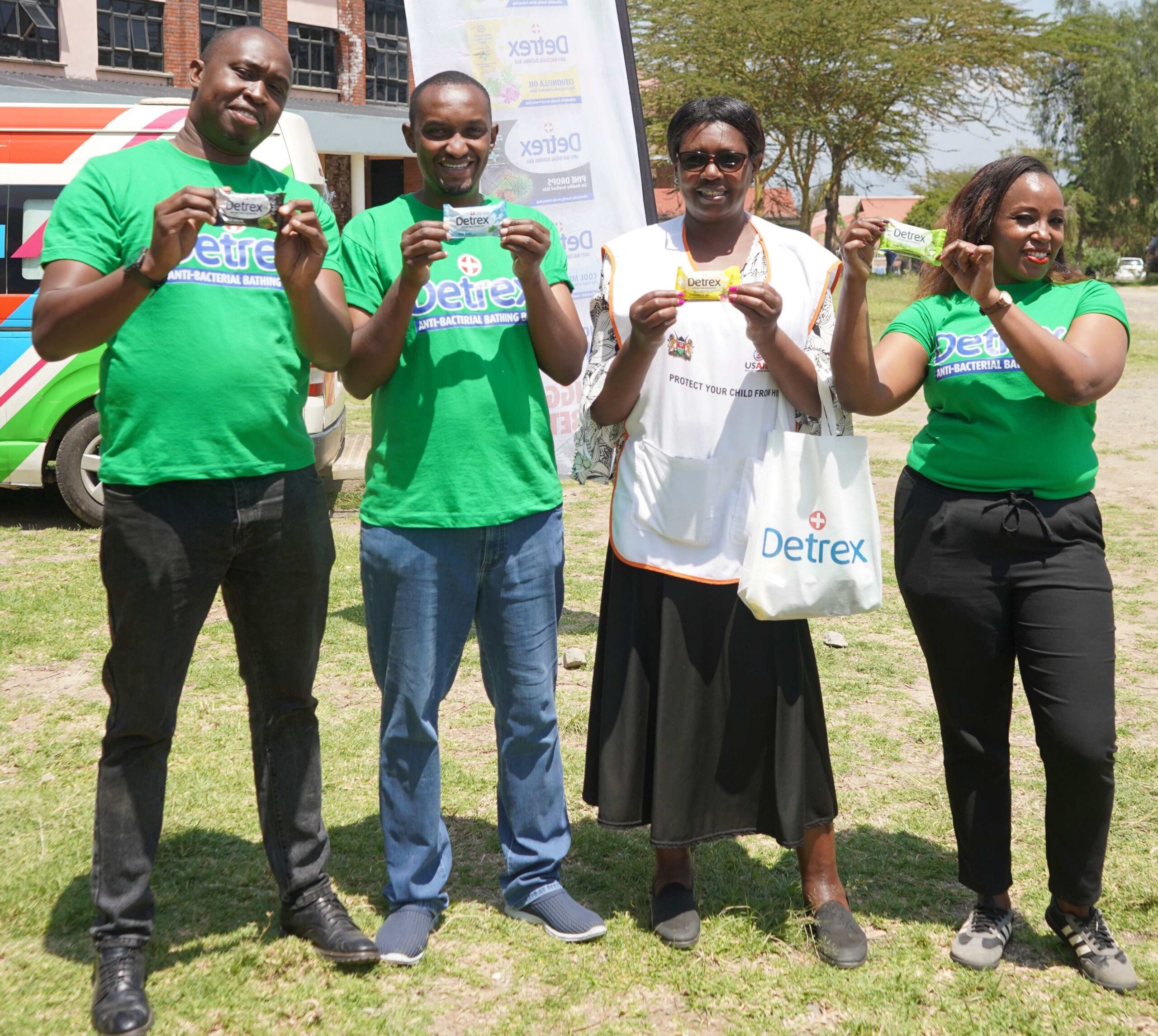
Naivasha, Kenya, Sept 26 – More than 400 women and children in Naivasha have benefited from a hygiene sensitisation campaign aimed at reducing preventable diseases linked to poor sanitation.
The campaign, held at Naivasha Level 4 Hospital, was organised by Pwani Oil Products Ltd in partnership with the Kenya Progressive Nurses Association (KPNA). Beneficiaries received hygiene education and free antibacterial soap to promote handwashing and personal care practices.
Naivasha has long struggled with sanitation challenges. Communities in Kihoto, Karagita, Kamere, Manera, DCK and Tarambeta face inadequate sewerage infrastructure, leaving residents vulnerable to diarrhoeal diseases, cholera, and typhoid.
According to the 2025 Economic Survey, diarrhoeal diseases remain among the top five outpatient illnesses in Kenya, with 2.85 million cases reported in 2024 alone—accounting for 4.3 percent of all outpatient visits.
During the campaign, nurses conducted live demonstrations on handwashing techniques and stressed the importance of proper hygiene in disease prevention.
“We are committed to supporting communities in their fight against preventable illnesses through hygiene education and access to safe, germ-protection products,” said Rajul Malde, Pwani Oil’s Commercial Director.
The exercise also saw the distribution of Detrex soap, developed by Pwani Oil, to women and caregivers. The initiative aligns with the company’s social impact agenda, which emphasizes community health, disease prevention, and empowering women as protectors of family well-being.
Kenya’s Struggle with Sanitation-Linked Diseases
Diarrhoeal diseases remain a persistent public health challenge in Kenya, ranking among the country’s top five outpatient illnesses. According to the 2025 Economic Survey, health facilities reported 2.85 million diarrhoeal cases in 2024, representing 4.3 percent of the national outpatient disease burden.
Inadequate access to safe water, poor sanitation, and limited hygiene awareness fuel the spread of diarrhoea, cholera, and typhoid. Vulnerable groups—especially children under five, women, and low-income households—are most at risk.
In urban centers like Naivasha, Mombasa, and Nairobi’s informal settlements, communities live without proper sewerage systems, forcing many to rely on contaminated water sources. The situation worsens during rainy seasons, when floods contaminate shallow wells and open water points.
Health experts stress that handwashing with soap, access to clean water, and proper sanitation facilities remain the most effective ways to prevent transmission. Yet, surveys show gaps in awareness and affordability of hygiene products in many Kenyan households.
The government has partnered with private companies and NGOs to close these gaps, but progress has been uneven. Initiatives such as hygiene sensitization campaigns, public handwashing stations, and distribution of affordable germ-protection products are helping to gradually improve outcomes.